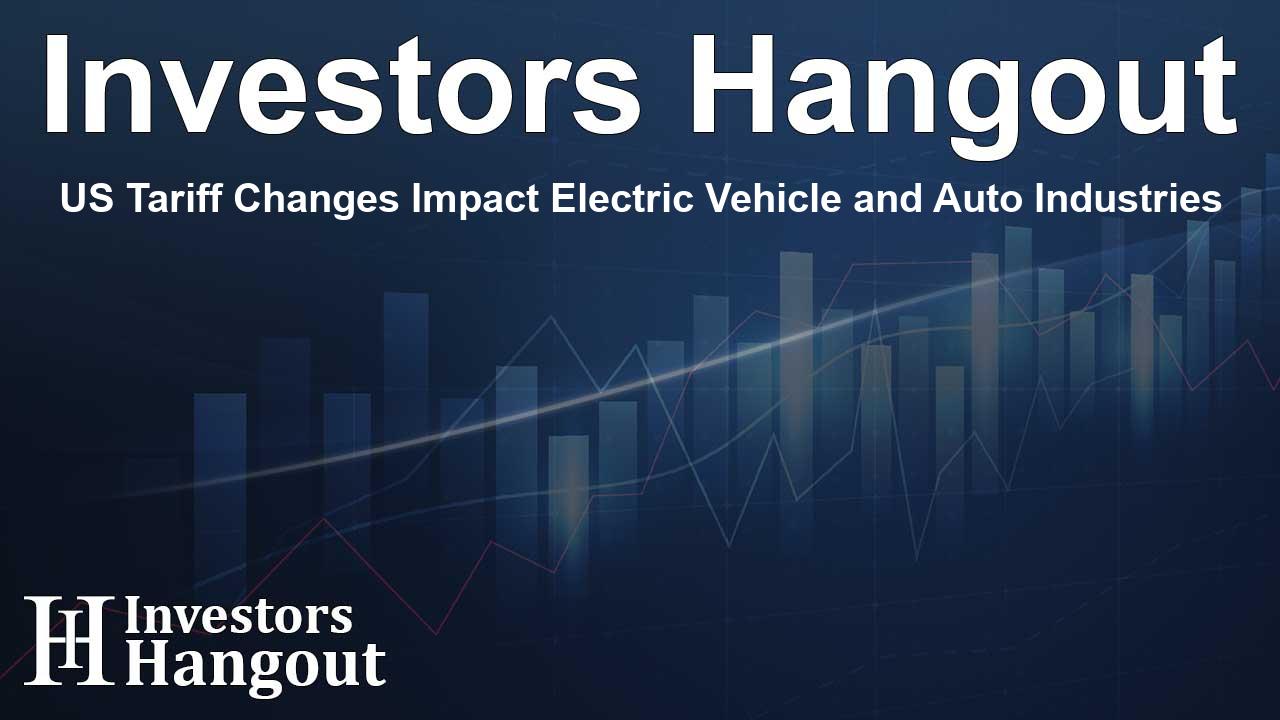US Tariff Changes Impact Electric Vehicle and Auto Industries

Significant Adjustments in Steel and Aluminum Tariffs
The U.S. Commerce Department is enacting a major hike in tariffs on steel and aluminum imports, impacting over 400 products, including essential components for electric vehicles (EVs), appliances, and heavy machinery. This decision extends the reach of tariffs into various sectors, with the tariffs affecting products from wind turbines to railcars.
Impact on Various Industries
The broadened tariffs will specifically target 407 product categories categorized as "derivative" steel and aluminum goods. The scheduled duty will impose a 50% tax on the steel and aluminum content, in addition to a standard rate based on the countries of origin for other materials. This means that many products, including automotive parts, will encounter increased costs, significantly altering pricing strategies across various sectors.
Growing Concerns among Manufacturers
Among those hit hardest by these new tariffs are manufacturers of automotive parts and appliances. Imported parts for automotive exhaust systems, as well as basic household appliances like refrigerators, will see heightened costs. This uptick in expenses could be passed down to consumers, potentially inflating the everyday costs for many products.
Extended Effects on the Automotive Sector
The auto industry, already grappling with supply chain challenges, now faces additional hurdles due to these heightened tariffs. Experts predict that these adjustments could add close to $2,000 to the average vehicle price, remarkably impacting automakers reliant on U.S. manufacturing, such as Ford Motor Co. (NYSE: F).
Reactions from Key Stakeholders
Initial reactions from the industry have ranged from support to strong opposition. Steelmakers like Cleveland-Cliffs (NYSE: CLF) and Nucor (NYSE: NUE) are cheering the move, advocating for even broader tariffs to cover additional auto parts. They argue that this broader application would ultimately benefit domestic production and bolster the U.S. steel industry.
Contrasting Views from EV Manufacturers
In stark contrast, EV manufacturers like Tesla (NASDAQ: TSLA) have voiced concerns about the tariffs. Specifically, Tesla has urged the Department of Commerce to exempt certain steel products critical to EV production, citing that the current U.S. manufacturing capacity can't support the demand for specialized steel used in electric motor production.
Implications for Future Market Dynamics
As the tariff regulations unfold, the broader implications for the U.S. market will be significant. With American consumers facing higher costs, purchasing decisions in the automotive sector and beyond will likely be influenced. As industry figures and stakeholders navigate these changes, market response will be essential as these tariffs potentially reshape competition and supply chains.
Frequently Asked Questions
What products are affected by the new tariffs?
The new tariffs affect a wide range of products, particularly over 400 categories including wind turbines, railcars, automotive parts, and household appliances.
How much is the tariff increase?
The tariffs impose a 50% duty specifically on the steel and aluminum portions of these products, along with additional country-specific rates on non-steel and non-aluminum components.
Which industries will be most impacted?
The automotive and appliance manufacturing industries are expected to face the most significant challenges due to increased costs associated with steel and aluminum components.
What are the expected consequences for car prices?
Experts predict that these tariffs could add up to $2,000 to the cost of new vehicles, significantly affecting consumer choices and the overall market.
How are businesses reacting to the tariff changes?
While steel producers support the increased tariffs, manufacturers of electric vehicles, like Tesla, are concerned about potential supply shortages and increased production costs.
About The Author
Contact Thomas Cooper privately here. Or send an email with ATTN: Thomas Cooper as the subject to contact@investorshangout.com.
About Investors Hangout
Investors Hangout is a leading online stock forum for financial discussion and learning, offering a wide range of free tools and resources. It draws in traders of all levels, who exchange market knowledge, investigate trading tactics, and keep an eye on industry developments in real time. Featuring financial articles, stock message boards, quotes, charts, company profiles, and live news updates. Through cooperative learning and a wealth of informational resources, it helps users from novices creating their first portfolios to experts honing their techniques. Join Investors Hangout today: https://investorshangout.com/
The content of this article is based on factual, publicly available information and does not represent legal, financial, or investment advice. Investors Hangout does not offer financial advice, and the author is not a licensed financial advisor. Consult a qualified advisor before making any financial or investment decisions based on this article. This article should not be considered advice to purchase, sell, or hold any securities or other investments. If any of the material provided here is inaccurate, please contact us for corrections.
